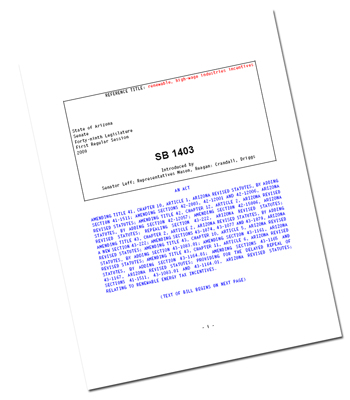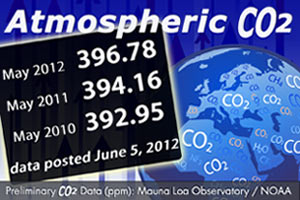Yesterday, Speaker of the Arizona House, Republican Kirk Adams, sought to “set the record straight” and put the political crisis caused by HB 2701 behind him. First, he had to cowboy up and place the blame where it properly belonged.
If you guessed that Adams took some responsibility for the debacle, as the “leader of the House” (as he put it) and as one of the bill’s sponsors, well, you don’t know our Speaker.
It was all the media’s fault.
Setting the Record Straight
“Recent news stories have depicted the Arizona House of Representatives as being anti-solar energy,” Adams said. “I wish to set the record straight.”
In Thursday’s press release, Adams sought to dispel this media-created false image of an Arizona House “unconcerned about the development of emerging renewably [sic] energy technologies.”
Adams was very clear about the House’s record of supporting solar and other renewable energy sources. After speaking in generalities, Adams cited two bills by number as evidence that the House he leads is pro-renewable.
The passage last year of SB1403 further propelled Arizona to the forefront internationally as an attractive location for renewable energy companies.
Adams is dead right about SB1403 — it received international praise and showed that Arizona was serious about becoming the “capital of solar power.” And passing it in the House was a difficult but ultimately successful battle. Of course, it would have passed more easily if Speaker Adams had supported it. But he opposed SB1403, voting “No” on the bill he now touts as a shining example of Arizona’s commitment to renewable energy.
Sending a Clear Message
The Speaker’s reference to a second bill is even more confusing.
“We have not rested on our past accomplishments,” he assured the world, “and continue to move forward with legislation like HB2060.” That bill, Adams declared will “send a clear message to global industries: we want you in Arizona.”
The bill is titled, An Act Amending Section 41.511.23, Arizona Revised Statutes: Making an Appropriation: Relating to Public Conservation Monies.
If that doesn’t seem like a clear message of support for renewable energy, you needn’t bother reading the six page bill text. It doesn’t make the link with renewable energy any more understandable. HB2060 deals with moving money around between state funds for park operations and conservation land purchases. There’s no mention of renewable energy. Or energy of any kind.
Speaker Adams was unavailable to answer questions about how HB2060 relates to renewable energy.
What we’re left with is not terribly reassuring to supporters of renewable power thinking of bringing jobs to Arizona. All we know so far is that HB2701 was withdrawn after renewable power companies, utilities, hundreds of citizens and the major state papers, all condemned it — with some major solar businesses threatening to leave the state or to call off plans to move here, if the bill wasn’t killed.
Having the bill withdrawn was a good thing. But let’s call it what it was: a panicked cut-our-losses response to a rapidly deteriorating political situation for the state Republican party.
Speaker Adams’ press release isn’t so much an effort to “set the record straight” as it as an attempt to throw a cover over a record too unpleasant to be seen — least of all, by voters.
Filed under: All, CO2, Downloads, Laws, Renewables, Solar, Southwest, Wind
Trackback Uri














